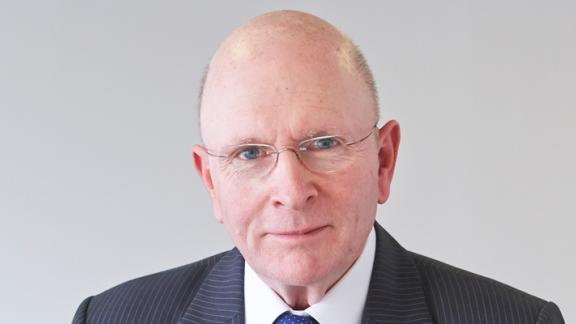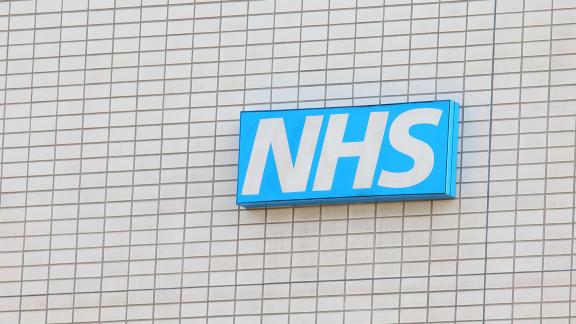The NHS Long Term Plan will fail unless social care is properly funded too

Despite the recent budget and the new NHS plan, the NHS will still need to make hard choices and underfunded social care services will continue to add extra pressure. The plan has the right ambition, says Niall Dickson, chief executive at the NHS Confederation, but we must be careful not to overpromise and underdeliver.
First published in i News
The NHS is entering a new era. After a decade which saw the lowest funding since the service was founded, significantly more investment is promised over the next ten years.
Starved of extra funding and facing huge increases in demand for services from a larger and older population, the NHS has managed not only to maintain services but in many areas deliver significant improvements in care.
But it is now in a precarious state. The health service has been unable to meet its constitutional standards including key waiting times targets for many years and NHS organisations throughout England are unable to balance their books. Underlying deficits, the gap between what health services are doing and are supposed to do are even greater and said by NHS Improvement to be as much as £4.1 billion.
Joined-up care
We should celebrate the new ten-year-plan – it does mark the dawn of a new era, with the prospect of creating a health service which embraces the digital era and radically changes the way services are delivered. An NHS service with much more emphasis and investment on joined-up care in the community which can start to relieve the pressure on hospitals and create a service that is sustainable as demand continues to rise throughout the 2020s, as surely it will.
It will also require a much greater focus on prevention and public health, as has been heavily trailed.
But the government and NHS leaders at the centre have had to balance the need to keep the service going with the need to transform the way operates. Perhaps understandably the Treasury has demanded that NHS organisations return to a world in which they balance their books, but of course investment there means less investment elsewhere. Demanding that most of the NHS is out of deficit by the end of next year requires some of the additional money to be devoted to that end and in particular to the hospital sector, and correspondingly less to community and GP services.
The real story from this plan then is that the NHS will need to go on making hard choices and politicians need to be honest about this reality – one of the greatest dangers facing the NHS today is that we overpromise and underdeliver.
The plan sets out a fair bit of detail on improvements to areas such as cancer and maternity care, support for children and people with learning disabilities as well a major increase on in mental health investment. Spending on GPs, community care and mental health will receive a third of the extra £20 billion the NHS will get per year by 2023, and will grow faster than the overall NHS budget. More specifically, spending on mental health services will rise to at least £2.3 billion a year by 2023/24. Taken together we will need to consider how all these can be achieved. At the same time, the NHS leaders we represent know there are several key factors that need to be addressed.
We need to make sure community services are built up
The first is that simply pouring more money into how we have traditionally provided health services to the public will not deliver the step change in quality and outcomes that are needed. Successive governments have failed to deliver the shift in care to community services. The plan suggests that over the next five years more will go into this area than into the hospital sector, but in the short term a lot will go into what amounts to propping up the existing service. We need to get this balance right – history suggests we will end up spending more on hospitals than we expect so real discipline will be needed to build up effective and efficient services in the community – otherwise the service will collapse.
One estimate suggests that if we just keep doing what we are doing now, we would have to double hospital provision over the next 15 years just to meet demand. That is clearly not sustainable.
The second critical challenge is securing the right staff, with the right skills. The NHS in England already has 100,000 vacancies. Unless we find new staff and use existing staff more effectively the extra funding will not deliver. The plan addresses some of this but a detailed workforce implementation plan is still awaited and the extra funding boost does not cover staff training – the future of that budget will be decided in the forthcoming spending review which will not kick in until 2020/21.
Social care is the elephant in the room
The other absent players in this production are public health and social care services provided by local councils. These services have been decimated in recent years and this has not only left hundreds of thousands of vulnerable people with unmet needs, it has also ramped up the pressure on GP surgeries, A&E departments and other NHS services.
The government will soon publish a long-awaited consultation on how we care for working age adults and older people with social care needs – this needs to finally resolve an issue that has been ducked by successive governments since Tony Blair’s aborted royal commission two decades ago. Without serious extra funding into social care the NHS plan will surely fail.
The final, critical challenge is securing a Brexit deal which safeguards care for patients and the public. A ‘no deal’ Brexit could have serious implications for the NHS and at least in the short to medium term the ambitions in the NHS plan would have to be revisited.
The NHS plan sets the right ambition for the future of healthcare in England. But its success or failure will rely on these critical tests being met – some of which are in the gift of the NHS; others that are not. Either way, the implications for the long-term health of all of us and our families will be profound.
Niall Dickson is chief executive of the NHS Confederation. Follow him on Twitter @NHSC_Niall and the confederation @NHSConfed
The NHS Confederation is bringing together leading voices for a series of blogs to unpack and digest the NHS Long Term Plan. Read more of the NHS Confederation's response to and analysis of the plan on our Long Term Plan page.
Today’s NHS Long Term Plan blog was first published in i News


